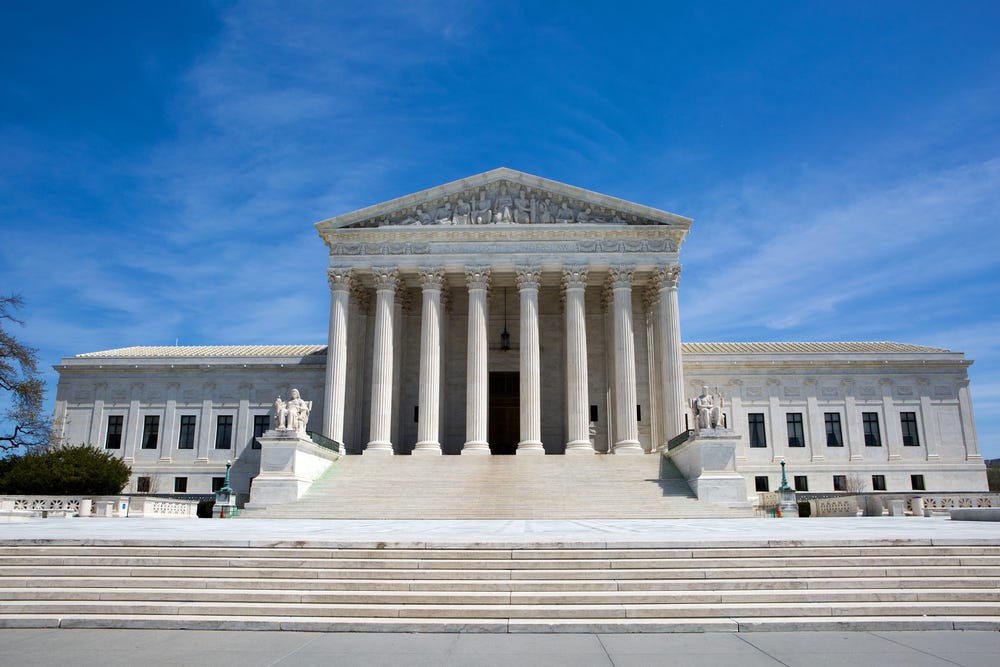How to Raise an (Optimistic) American, Part 4
"You will have your day in court."
[This is the fourth of an 8-part series. Read Parts One, Two, and Three about what makes the U.S. system special. We’ll be posting one update a week going forward.]
The fourth of America’s eight foundations is our legal system: individual justice with presumption of innocence, due process protections, rules of evidence, common law traditions.
The American legal system is rooted in individual, not group, responsibility and culpability. This means that if an individual is guilty, we do not simultaneously condemn other members of his or her family, or future generations yet unborn, as we once did, a long time ago, and as they still do in, say, North Korea. If one person commits a crime, we do not hold others accountable. You are responsible for yourself.
Likewise, centuries of Anglo-American legal traditions have resulted in legal processes that presume an individual innocent until proven guilty, and that grant an accused person the benefit of due process. These are precious rights to be guarded and protected, and their adoption derives from a long history of experience in what goes wrong when these protections are absent.
Accused Americans are presumed innocent until proven guilty and they are entitled to receive due process in trial proceedings; there is no inherited, collective, tribal, or blood guilt. The accused has certain rights and the accuser has the responsibility to prove their case. Our system relies on truthful witnesses (the 9th commandment: thou shalt not bear false witness), includes careful rules of evidence, and relies on objective, impartial judgment by disinterested parties (judge and jury). Accusations must be subjected to careful cross-examination in order to arrive at the nearest possible approximation of truth. In American law, the intent of the accused matters.
In the absence of such protections and in other or prior systems, we find abuses such as show trials, witch trials, Kafka traps, and guilt by association.
American laws also enshrine secure property rights for citizens, which are foundational to prosperity for all because without them, the source of human motivation to expend effort to produce would be destroyed. Other countries want to do business in countries with sound legal systems like ours because they know that they function well, and that their own rights will be protected. Our prosperity relies on having a strong, functioning legal system.
Based on our broader Judeo-Christian heritage, our legal system also embeds biblical concepts of righting wrongs, making amends, confession, forgiveness, and paths to redemption.
Foundational sources: Magna Carta, the Bill of Rights, Proverbs 18:17, Supreme Court rulings, The Trial (Kafka). The Crucible, Salem Witch Trial accounts, To Kill a Mockingbird, 12 Angry Men
[This is the fourth of an 8-part series. We’ll be posting one new update a week throughout 2024.]


